Just found this announcement for an article that I write with Marcus Schaper some 15 years ago – seeing it has more than 700 paid downloads.
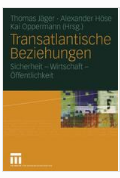 Konflikt statt Kooperation? Die transatlantischen Umweltbeziehungen
Konflikt statt Kooperation? Die transatlantischen Umweltbeziehungen
Just found this announcement for an article that I write with Marcus Schaper some 15 years ago – seeing it has more than 700 paid downloads.
 Konflikt statt Kooperation? Die transatlantischen Umweltbeziehungen
Konflikt statt Kooperation? Die transatlantischen Umweltbeziehungen
Energy and transport profile:
Cat Ba Island, Viet Nam
Energy and transport profile:
Easter Island, Chile
Energy and transport profile:
Romblon Island,The Philippines
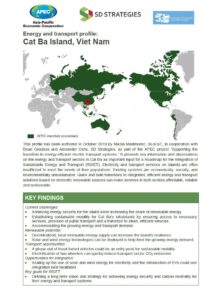
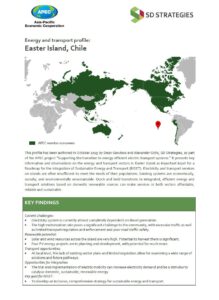
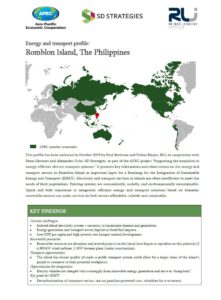
Rural Electrification in Sierra Leone: The Role of Mini-Grids vis-à-vis Stand-alone Home System and Grid Extension
Advancing Mini-Grids in Sierra Leone: Exploring a Holistic Framework of Policies, Religions, and Institutions
Suggested Policy Priorities for the Advancement of Efficient Lighting in Sierra Leone
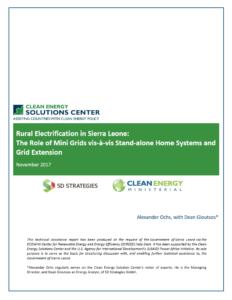
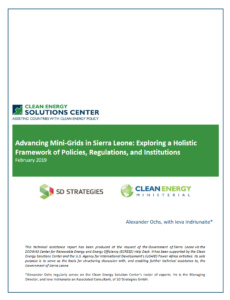
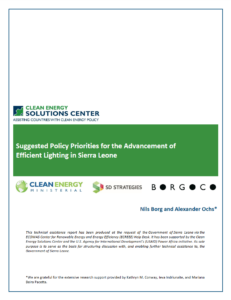
Presentation on energy effiiciency in the Energiewende, as delivered today at the World Expo on the Future of Energy in Astana, Kazakhstan.
A new report reviews the first year of the LEDS GP’s Bioelectricity Community of Practice in Latin America and the Caribbean, and outlines its key activities and outcomes.
From: http://ledsgp.org/resource/advancing-bioelectricity-lac-one-year-on/
No. of pages: 27
Author(s): Alexander Ochs, Philip Killeen, Ana Maria Majano
Organisation(s): LEDS LAC, LEDS GP
The Bioelectricity Community of Practice, run by the Regional Platform for Latin America and the Caribbean (LEDS LAC) and Energy Working Group, brings together LAC government leaders in charge of designing and implementing bioelectricity policies and programs. It gives them the opportunity to share tools for gathering and processing bioelectricity data to support decision-making. This report describes the activities of the Community of Practice from its inception in July 2016, and identifies the primary areas for tapping into biomass for electricity generation.
During sessions, practitioners applied what they learned to their individual country contexts and had the opportunity to discuss their results and collaborate on shared challenges with supporting experts across several online forums, including private Dropbox and LinkedIn groups.
The Community of Practice addressed key questions such as:
Participants noted that governments in the LAC region often lack access to quality data and tools to evaluate alternative options for bioelectricity development. Some of the knowledge gaps identified included a lack of: information on developing effective communication and collaboration between government ministries; research on available technologies, regulations, and resource assessments for electricity generation from agricultural biomass; and case studies of successful bioelectricity generation in other countries. However, country members also felt that through bioelectricity is not only a low emission alternative to fossil fuels, but economically viable as well. Opportunities such as accessing private sector finance, aligning national and subnational energy policies, and building public consensus on NAMAs could help realize its potential.
Workshop facilitators collaborated with the attendees to design 2017 work plan for the Community of Practice to be supported by LEDS LAC and the Energy Working Group. The 2017 work plan picks out the following priority areas:
The work plan outlined in detail in the report provides a comprehensive starting point for Community of Practice members to more effectively communicate bioelectricity sector risks and opportunities to their home institutions. On its own, however, this framework cannot catalyze the transformative change that members hope to achieve. In order to build on progress made in 2016, the report recommends continued group-oriented activities and country-specific technical assistance.
Presenting the work of the Low Emissions Development Strategies Energy Working Group at the founding meeting of the LEDS GP Europe and Eurasia Platform in Budapest.
Presentation given at the Asia LEDS Forum on Mobilizing Finance for Priority Actions in Hanoi, Vietnam, Day 2 (June 28th, 2016), as introduction to Track 4: How to attract sustainable energy investments? I chaired this track with my colleague Xander van Tilburg from ECN.
Feb 16: Join @OchsNews in Bonn, Germany for a @Germanwatch event #FastForward16 https://t.co/nO6MM2Y9Yf pic.twitter.com/kutUnqonte
— Re|Volt (@WorldwatchEn) February 10, 2016
Presentation at GECCO-IUCN-USAID webinar on Gender equality & mitigation: COP21 implications for implementing mitigation activities, 5 Feb 2015
Recording of the Webinar is available [here].
Overall, Latin America and the Caribbean (LAC) has traditionally been a world leader in the use of renewable energy sources for power generation (mainly hydro power), with important sub-regional differences, but the use of fossil fuels grew rapidly in the late 1900s. There have been many initiatives on renewables and energy efficiency on the part of governments and local organizations, supported by multilateral development banks, UN organizations, international NGOs.
The recent development of non-traditional renewable energies (wind, solar, geothermal, modern biomass) is helping meet important development goals (growth, access, affordability) with a lower impact on greenhouse gas emissions. There are still important challenges related to investment climate, business model financing, but there are many lessons to share, both on what works and what doesn´t work.